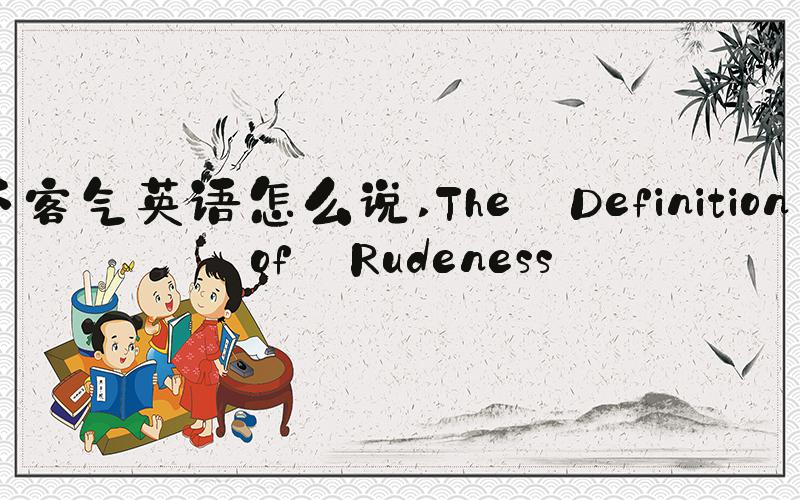
What Exactly Does "Don't Be Rude" Mean?
Many people grow up hearing the phrase "don't be rude" from their parents, teachers, and other authority figures. But what does it really mean to be rude? And how can you avoid being rude without sacrificing your own needs and wants? In this article, we'll explore the meaning of rudeness and offer some tips for communicating effectively without being rude.
The Definition of Rudeness
Rudeness can take many forms, from outright insults and name-calling to more subtle forms of disrespect and dismissiveness. Generally, rudeness is seen as behavior that violates social norms and expectations, and it can leave people feeling ignored, belittled, or hurt. Some examples of rude behavior might include interrupting someone while they're speaking, ignoring someone's feelings or opinions, or failing to acknowledge someone's presence.
The Dangers of Rudeness
While some people might see rudeness as a way to get ahead or assert their power, it can actually have some pretty serious consequences. For one thing, rude behavior can damage relationships and make it harder for you to get along with others. It can also make people less likely to want to work with you or hire you. Additionally, studies have shown that rudeness can have negative impacts on your physical and mental health, increasing stress levels and even leading to cardiovascular disease and other health problems.
How to Avoid Rudeness
Given the risks associated with being rude, it's important to learn how to communicate effectively without crossing the line into rudeness. One key strategy is to practice active listening, which involves paying close attention to what the other person is saying, asking clarifying questions, and summarizing their points to demonstrate your understanding. Another important technique is to avoid making assumptions or jumping to conclusions, as this can lead to misunderstandings and hurt feelings.
It's also important to make sure you're expressing your own needs and opinions clearly and assertively, but without attacking or belittling others. This can involve using "I" statements to convey your perspective ("I feel frustrated when...") rather than accusatory language or blame ("You always do this..."), as well as avoiding negative language or tone that might come across as aggressive or dismissive. Remember, just because you're advocating for yourself doesn't mean you have to be rude to others in the process.
The Benefits of Being Polite
Finally, it's worth noting that there are plenty of benefits to being polite and respectful in your interactions with others. Not only can it help you foster stronger relationships and build trust with others, but it can also make you feel better about yourself and contribute to a more positive and supportive workplace or social environment. By taking the time to communicate effectively and avoid rudeness, you can create a more harmonious and fulfilling social life for yourself and those around you.
Conclusion
In summary, rudeness can be a major obstacle to effective communication and positive relationships. By learning to communicate assertively and actively listen to others, you can avoid being rude while still expressing your own needs and opinions. The benefits of politeness and respect are clear, making it well worth the effort to avoid rudeness in your daily interactions with others.

